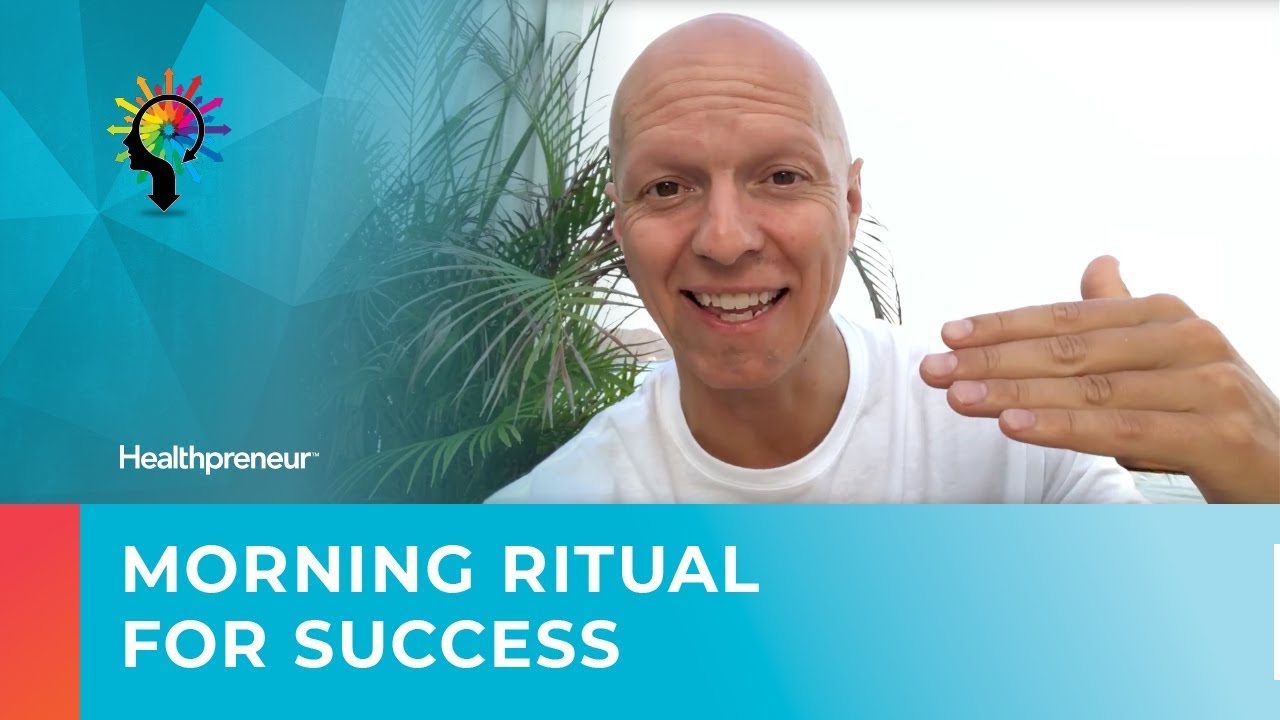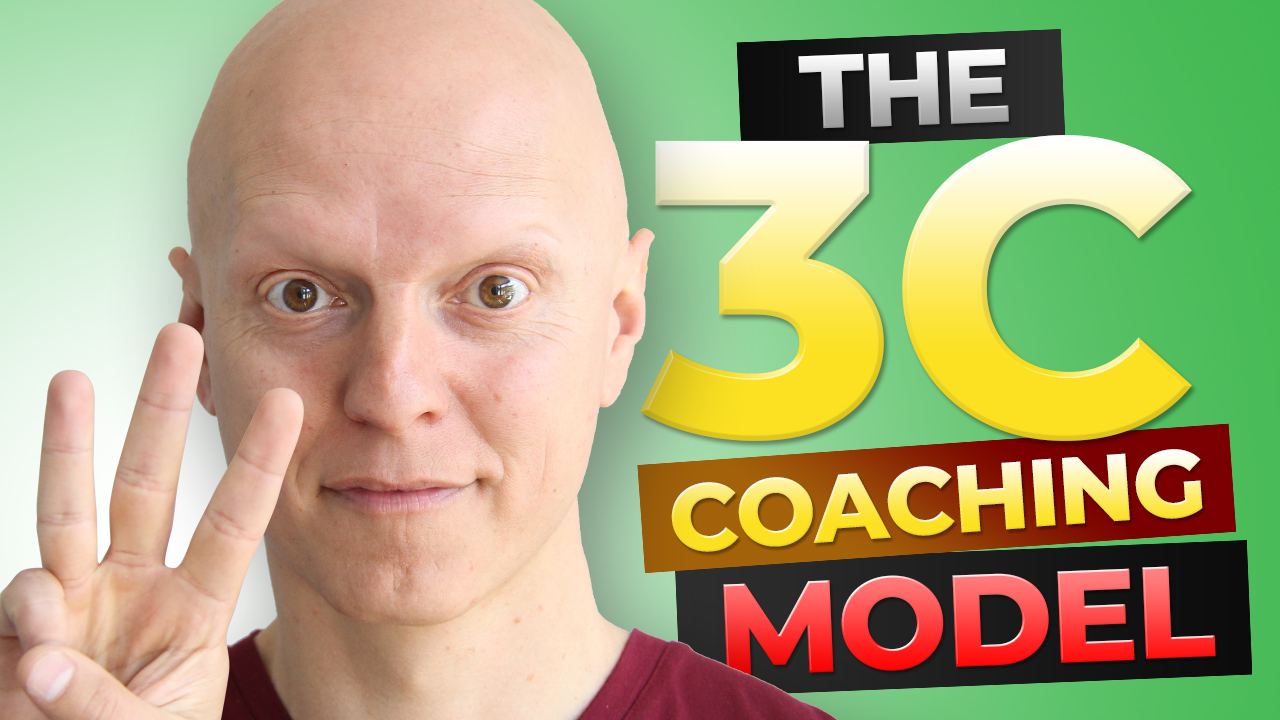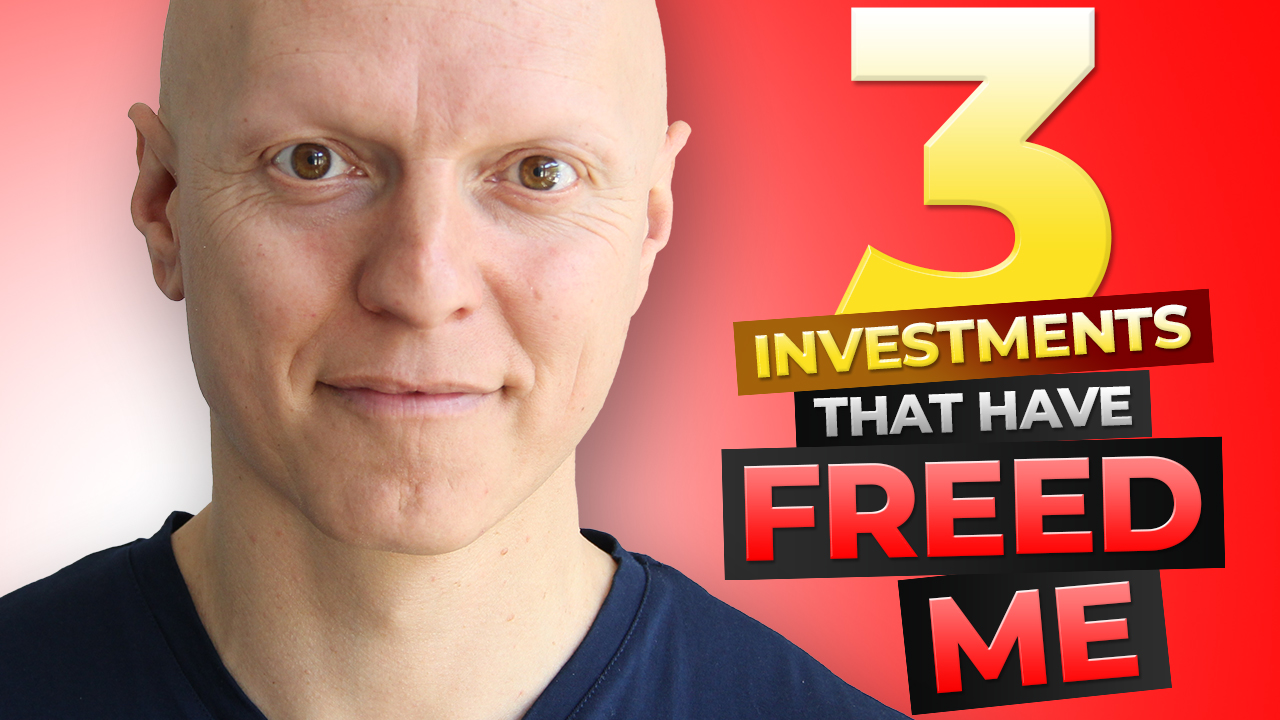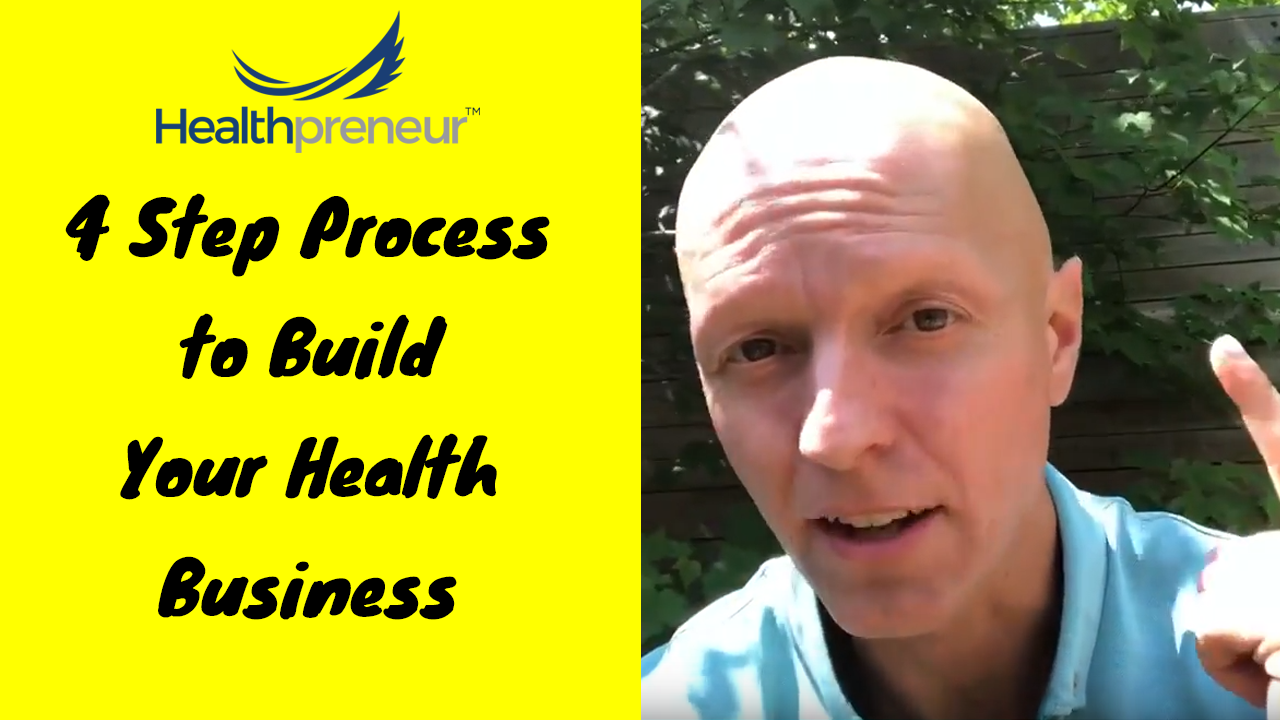5 Costly Mistakes I’m Happy I Made While Building My Online Business
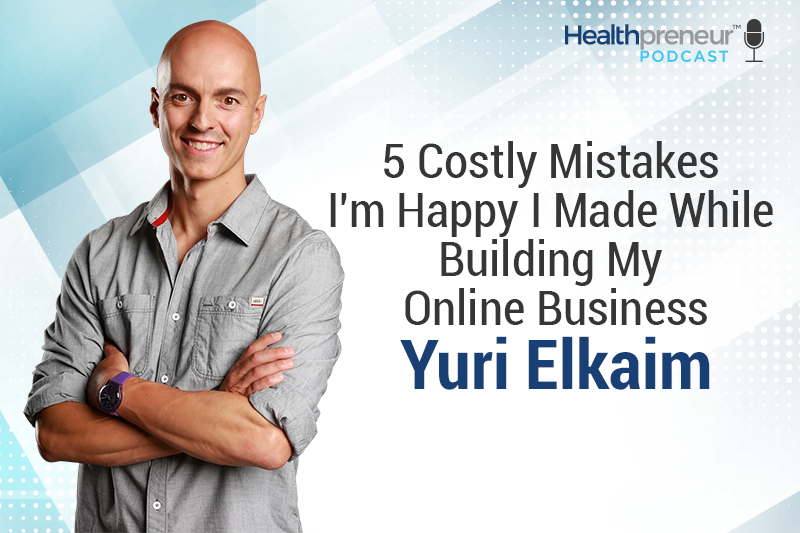
I’ve got a solo episode for you today where I’ll be diving into five costly mistakes I’m happy that I made while building my online business. If you don’t already know, I am a slow learner. And I made a lot of mistakes as I was building my online health and fitness business, but I learned from all of them.
In this episode I’m going to share those mistakes with you, so that you can learn the lessons that I’ve learned—without having to make the mistakes in the first place.
In this episode I discuss:
4:00 – 8:00 – Guidance and positioning.
8:00 – 1100 – Under-promise, over-deliver.
11:00 – 12:00 – Hiring a coach!
12:00 – 13:00 – Live events
13:00 – 15:00 – The one-man show
Transcription
Hey! What’s up? Yuri here. Welcome to the Healthpreneur podcast.
I’m super pumped to be with you once again today, because I’m going to share five costly mistakes I’m happy that I made while building my online business.
I say that with a degree of pride because I’m a huge believer in failing forward fast, and when it comes to failure—I might have the gold medal on that one, in terms of how many times I have failed or I have failed to hit my goals.
It’s been a learning process. I mean, being able to continually strive forward, even in the face of adversity … Winston Churchill, one of my favorite quotes of all time, he says something to the effect of, “Success is going from failure to failure with unbending enthusiasm.” And for me that really strikes home because, I don’t know about you, but I have failed repeatedly. And I don’t really look at it as failure because every single time I learn.
I learn, “Okay, this didn’t work. These people didn’t care about this. This offer didn’t work out. Let’s try something new.”
So in this episode, I’m going to share a recent video that I shot, which deals exactly with this topic—these five costly mistakes that I’m happy I made. Hopefully they will save you time, money, and frustration.
So we’re going to jump right into it.
I want to share five costly mistakes that I’m actually happy that I made because I’ve learned a lot from them. If you make mistakes, that’s great—the key is to learn from them and hopefully not make them again.
The only reason that I’m able to be one of the leading online business strategists for the health and wellness industry—having worked with New York Times bestselling authors, seven and eight-figure businesses and everyone in between—is because I’ve simply taken a lot of action, I’ve made a hell of a lot of mistakes, and I’ve learned from them.
I’ve used the approach of fail forward fast, and I’ve learned a couple more things, I’m maybe one or two steps ahead of some other people—and I’m able to use that insight and wisdom to help their business. I want to share five big mistakes that hopefully you can learn from as well.
1. Guidance and positioning
All right, so here’s the first one. When I was starting my online business, I had no guidance. This was back in 2006. I had no idea what I was doing.
I was taking advice from anyone and everyone, even those who were not qualified. I had a personal training client at the time, because I was still training clients a little bit at that time … And I had developed this new workout program called Fitter U, and he said, “You should take this and get into trade shows. Get a booth. Get people exposed to it.”
I was like, “You know what, that’s a great idea.”
So I invested $35,000 to create all these products—boxes upon boxes of this workout product— and we went around Canada to four different trade shows over the course of that year to exhibit them.
Well, guess how that went. It didn’t go very well, okay?
What I realized from this experience, was a few things. First, don’t take advice from people who are not already doing what you want to do—that was a big one.
Second, trade shows suck, especially as a vendor. If you’re just going to go there and kind of meet to network and build some relationships, cool. But as a vendor, it’s a terrible positioning play. Now, let me explain that.
For three of the trade shows, we were just exhibitors. We just had our booth set up, we had some iPods set up with the workout so people could come and listen, because it was my voice on your headphones guiding through the workouts.
We gave people the opportunity to listen—but here’s the thing … When you have a booth and you’re one of many hundreds, you’re literally trying to flag people in to consume your stuff. It’s very similar to going to a restaurant or walking down the street and there’s a restaurant with the maître d’ outside on the sidewalk waving a menu in front of your face with some kind of special deal.
Now, let me ask you this: Are you jumping to get into that restaurant? Does that really entice you to go into that restaurant, or would you rather cross the street and run away?
Probably the latter, right?

That’s because the positioning is terrible. When you look desperate, nobody wants to do business with you.
It’s a weird psychological thing. We always want to do business with those who seem too busy to do business with us—because it’s a matter of social proof. We don’t want to be duped. We don’t want to make the wrong choice … So if we see somebody—or a restaurant—that is really busy, well, we’re happy to wait in line because that’s social proof that it is the place to be.
Now, by contrast—at one of the trade shows, I actually spoke on stage. We had our booth, and I also spoke on stage.
After my talk, I came offstage, and I had a line of people coming to me, asking questions. You’ve probably experienced this too if you’ve been to some type of event where a speaker comes offstage and all of a sudden everyone wants to talk with them.
Why does that happen? Again, it’s positioning.
You’re onstage—you’re literally up here, and everyone else is down there. From a positioning standpoint, if you are onstage, you are positioned as a credible authority. That’s a very different position than being behind a booth and trying to flag people over to you.
What happened at that specific trade show was that, after speaking on stage, we had a swarm of people come to the table, come to our booth. And that’s because they had seen me as this authoritative leader creating “pseudo-celebrityism,” if you will, just within the trade show, and now people were flocking to our booth.
Positioning is massively important.
So if you can leverage whatever you’re doing credibility-wise, PR-wise—whatever it can make a huge difference.
I’ve been on Dr. Oz. I’ve been on The Doctors. I’ve been on pretty much every media outlet I can think of, and the only reason I’ve done that is to position myself as a credible expert.
I leverage that in a very specific way to build pseudo-fame within my space, okay? That’s really important.
Again, I wouldn’t recommend doing trade shows, but positioning is really important, especially in a very competitive online health and wellness space.
2. Under-promise, over-deliver
Okay. Second big mistake, second costly mistake, was I did a launch. My first launch that I did online was actually a few years after I started my online business, and this makes it even more embarrassing.
I kind of knew what I was doing—or thought I knew what I was doing—at the time. We had a product called Fitter Than the Pros,and I was basically going to go out and interview other health and wellness experts in the online space who were doing really well, and ask them, “Hey, how do you stay in such great shape while building a great business?”
I thought, “Everyone will want to know this because it’s kind of ‘behind the scenes.’ These people are big influencers and maybe their followers would want to see what they’re doing behind the scenes,” so I’m like, “This is going to be amazing.”
We had 12 people interviewed and I thought this was going to be the next thing since sliced bread. Just so you know—this was before summits became a thing, okay? In this case I was essentially selling entertainment and motivation. There was no real kind of problem that I was solving.
And I made these big promises to our partners. I said, “Listen, this is going to be the biggest launch ever. We’re going to do multiple six figures. Just promote it through the lists. It’s going to do great.”
A lot of these guys and girls were pretty smart, so they may have taken me with a grain of salt, but nonetheless I was out for drinks with some friends the night before the launch began and I said, “Guys, get whatever you want—literally, it’s on me. Tomorrow’s going to be a big day.”
They’re like, “What’s going on?”
So I told them, “Listen, we got this big thing going on. I’ve got a big launch. We’re going to make a ton of money, help a ton of people, so I just want to celebrate ahead of time, okay.”
That was mistake number one because I got stuck with a big bill that I didn’t want to pay after.
So, the next day I wake up, and I look at my stats, and we’ve got crickets. I’m thinking, “Is there something wrong with the website?” So I check the website, everything’s great.
Okay, what’s going on?
Couple days go by, couple sales come in. At the end of five days, five-day launch, we did a total of $5,000 gross. Now, I say gross because we paid 75% commission to our partners, so we left the whole thing with maybe $1,200 in revenue for us.
So that was a big waste of time, if you want to think of it that way. But worse than that was the fact that I made a lot of big promises and didn’t deliver on them.
So the lesson here is under-promise, over-deliver.
The other thing is … Do not approach joint venture partners with an untested concept. Test your stuff internally. Test it on Facebook ads. Test it in some way where you can go to your partners with confidence and say, “Listen, here are the numbers. We’ve tested this out. I’m very confident it’s going to work for you.”
That is a much better approach, and you will not look like an idiot as a result of doing that.
3. Hiring a coach
So that’s the second one. Number three is not having a coach, not hiring a coach sooner.
Again, as I mentioned—my first couple years online were a big struggle. I’m telling you, I’m a slow, stubborn learner. It took me four years to finally get some momentum going after I started my online business, and the big shift there was that I actually hired a coach and joined a mastermind.
The lesson there is that I didn’t know what I didn’t even know. I was exposed to stuff that I had never even thought of before. I was given proven strategies, proven paths to follow that would accelerate my success and prevent even more mistakes from being made.
So if you don’t have a coach, if you’re not part of a coaching group or a mastermind, I strongly suggest you look into one. If you’re interested in some of the stuff that we’re doing, you can reach out to us and we can see if you’re a good fit, but nonetheless you need to find a group that is right for you.
4. Live events
The fourth big mistake is not going to more live events.
Again, I didn’t go to live events until four years into my online business. What I tell people is like, “Listen. If you want to build your online business, spend more time offline.”

Build relationships in person. That’s how you actually develop lasting relationships, not only from a business perspective but actual friendships. I’m very grateful that a lot of my close friends now are colleagues, people in our space who are doing very, very good things in terms of their success financially as well as the impact they’ve had on this world.
And that would not have happened had I not attended these events and initially met them there.
So don’t be a hermit. Don’t sit behind your computer. Get out, meet people, and that’s the best way to really start building your online business.
5. The one-man show
The fifth big mistake was the one-man show.
Like I said, I was a stubborn, slow learner, but I was also a rugged individualist. I thought I could figure all this stuff out on my own, so I didn’t start building my team until about five and a half years into my business.
So what I’d recommend for you is this. Make a list, okay? You’re going to take a sheet of paper, draw a line in the middle.
On one half of that paper, you’re going to write down everything you love doing. What are the things that you love doing, that energize you, that you could do all day long? For me, video is one of them.
On the other side of the page, write down everything you hate doing, and I say hate as in there’s emotional charge, like you never want to do this again. Editing would be one of them for me.
So you have this list, and it’s probably going to be a small list of stuff you love doing. There might be three to five things. But you’re going to have a very long list of things you don’t like doing.
This could be cutting the lawn, it could be editing, it could numbers, it could be whatever it is for you.
So, from that list of stuff you don’t like to do, you want to group some things together that kind of go together and use those as your initial job descriptions for someone else to do.
Once you’re at a point where you can hire somebody, even if it’s just a couple hours a week and you’re spending maybe 100 bucks or 200 bucks, whether it’s for a virtual assistant or an in-person assistant, or someone along those lines, you can start to offload the stuff you don’t love to do and focus on more of the stuff that you love to do.
And when you’re able to do that, well, guess what happens? You actually really enjoy building your business, as opposed to dreading the fact that you, “Oh my God, I got to do this and this and this.”
So, start to think about building your team slowly but surely. For me, the way I think about it is, “The bigger the dream, the bigger the team.”
I’ve forgone some profits in my business to put that money back into our company to build our team, so that I have more freedom in my life, and I’m only able to do the stuff I want to do. For me, that’s a worthwhile trade-off.
Anyway, those are the five costly mistakes that I’m happy that I made because I learned a lot from those.
Hopefully these five mistakes save you some time, frustration, and money, so you don’t repeat them in the way that I did. If you found them helpful, then that’s great.

That is all for today, I want to thank you so much for joining me and hopefully enjoying this episode. Every Monday, remember, I’m back with a solo round. Sometimes I’ll take snippets of videos with previous content that I’ve created. Sometimes I’ll take snippets from some live talks that I’ve given. Sometimes I’ll just be with you one-on-one and we’ll have some fun either way.
If you enjoyed this episode, head on over to iTunes and subscribe to Healthpreneur™ Podcast if you haven’t done so already.
While you’re there, leave a rating and review. It really helps us out to reach more people because that is what we’re here to do.
What You Missed
Amy Lewis shares her incredible story of how she turned a small Vermont town of only 800 people into a thriving six-figure business.
Amy busts through the myth and misconception that in order to build a thriving, successful business, you need to have thousands and thousands of customers.
Regardless of whether you’re in the online market or not, there are some amazing lessons in this episode and some knowledge that is invaluable to any entrepreneur.
Related posts
December 11, 2021
Create The Best Signature Coaching Program (The 3C Model)
Want to know the best thing…


